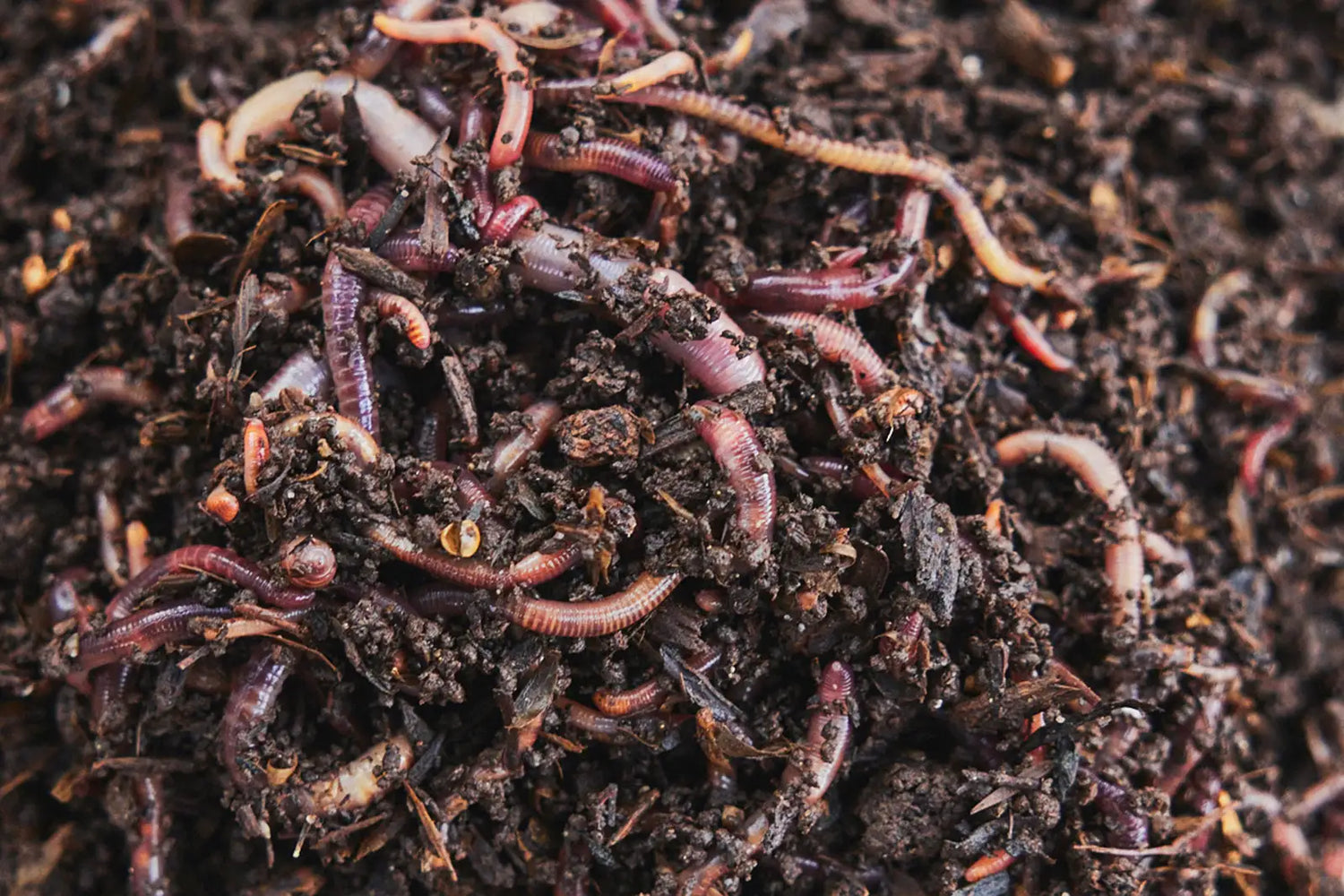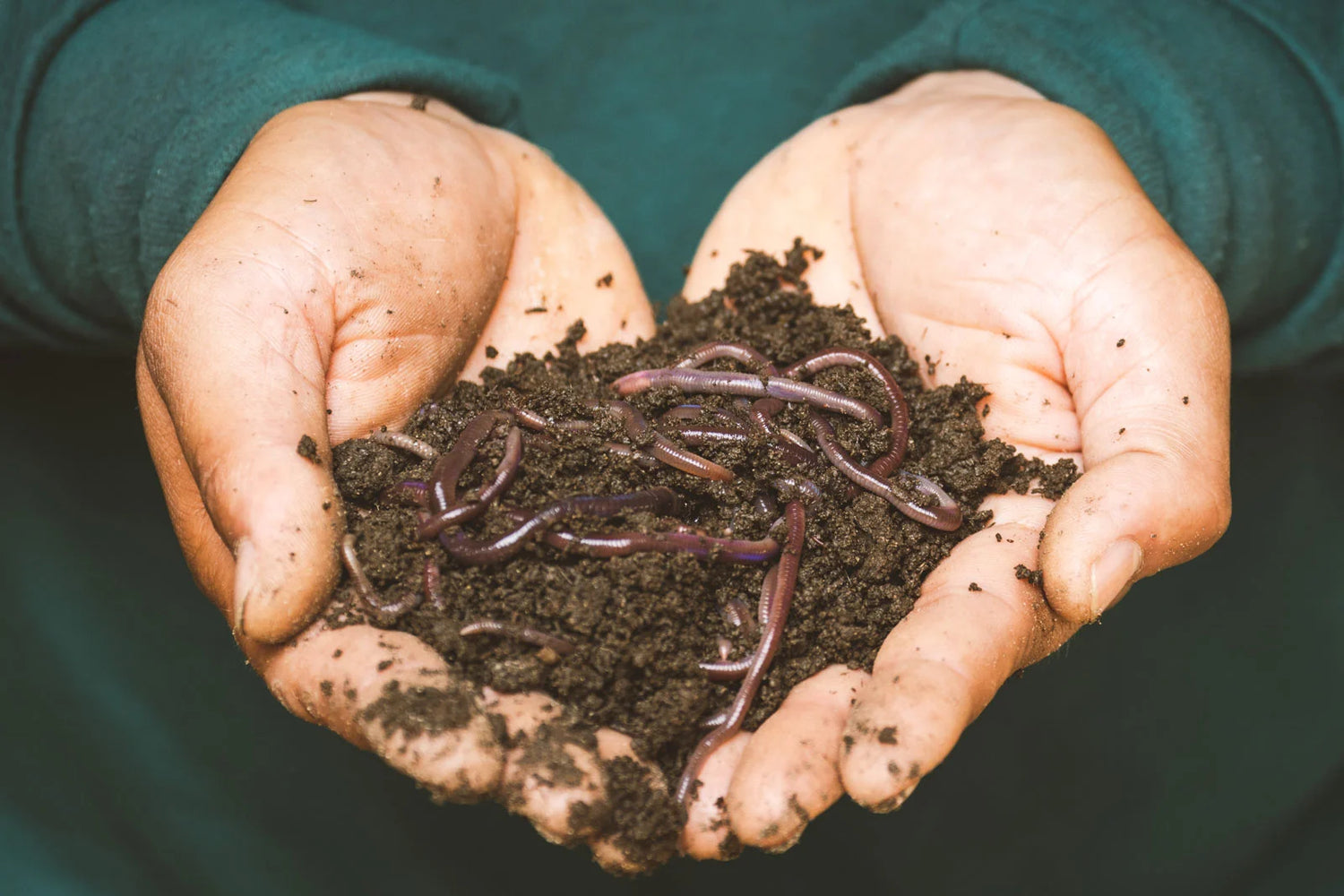The difference between the earthworm and the compost worm
Both the compost worm and the earthworm (dew worm or common earthworm) belong to the earthworm family, but differ in their habitat and function. Earthworms that live in the soil contribute to soil aeration by digging tunnels and feed on organic soil matter. Compost worms, on the other hand, favour rich organic materials such as compost heaps. They are more effective at breaking down kitchen and garden waste, live in denser populations and are ideal for worm composting systems as they quickly produce nutrient-rich compost.



